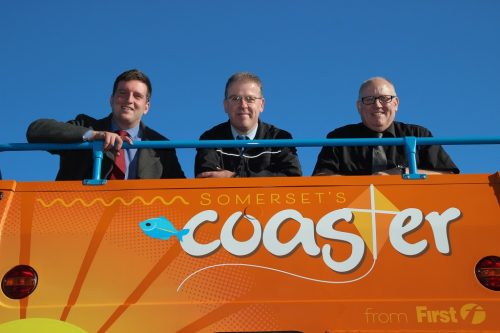
Returning Weston to its former glory while dealing with a host of challenges is no mean feat, as Chris Hanson explains to Dominic Ward
It’s fair to say that Weston-super-Mare’s (WsM) depot has faced its fair share of challenges over the years, including competitors and congestion. One man determined to make a difference to the running at WsM is Staff Operations Manager, Chris Hanson. Along with his team – supported by Operations Director, Andrew Sherrington – WsM depot has seen shoots of growth.
Chris brings with him a passion for transport, as well as great knowledge of the area.
Meet the man
“Transport has interested me ever since I was a kid,” Chris enthused. “I come from just outside Portsmouth originally, and I always had a real fascination with different buses even when I was a kid – I wanted to get on the Red Admiral, not the blue one, because I never knew where the red one went.”
Chris moved to Portishead when he was a teenager, when the local service was still Badgerline branded, although at that time coming under the moniker of First Badgerline. His main interest lay with the media: “It’s where I thought my career was going to take me.”[…]
By subscribing you will benefit from:
- Operator & Supplier Profiles
- Face-to-Face Interviews
- Lastest News
- Test Drives and Reviews
- Legal Updates
- Route Focus
- Industry Insider Opinions
- Passenger Perspective
- Vehicle Launches
- and much more!


